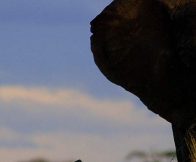Explore Tanzania
Explore Kenya
Tanzania summary of Standard Operating Procedures for COVID 19, May 2020
THE UNITED REPUBLIC OF TANZANIA
Summary of National Standard Operating Procedures for the Management of COVID 19
In the Tourism Businesses
According to the Ministry of Health & Ministry of Natural Resources and Tourism
You can download the full version of the protocol please click the link HERE
1. INTRODUCTION TO STANDARD OPERATING PROCEDURES (SOPS)
Tanzania until today was not severely hit by the epidemic but in recognition of the importance of health, safety, and security of tourists and in accordance with WHO, Tanzania’s tourism industry puts detailed protocols regarding protection from Coronavirus. The protocol should be adopted by all tourism entities. Government Institutions, tourism business operators, and other stakeholders are encouraged to continuously monitor advisories issued by the Ministry of Health. This is a summary of the protocol concerning travelers to Tanzania.
2 General Standard Operating Procedures. The following are the general SOPs for the tourism sector.
1) Every tourism entity must appoint and adequately train a COVID-19 Liaison Officer who will be the point of contact with the Ministry. The COVID-19 Liaison Officer should keep abreast of health protocols and preventive measures and be updated on all designated approved hospitals for COVID-19 testing and treatment.
2) Every tourism entity should ensure that updated COVID-19 precautionary measures are continuously observed and communicated accordingly with international booking agencies.
3) Every tourism entity should ensure that all contact surfaces are cleaned and sanitized with approved disinfectants on a regular basis;
4) Every tourism entity should ensure that all staff use recommended protective gears when attending to guests and servicing guest areas;
5) Every tourism entity must provide handwashing and sanitizing facilities such as soap, sanitizers and running water to both guests and staff;
6) Every tourism entity should have in place thermal screening at entrance points;
7) Every tourism entity, mostly guest accommodation facility, must have in place an insurance mechanism for assisting guests to reach a designated hospital as approved by the Ministry or where possible to enable evacuation arrangements;
8) Every tourism entity must create a disposal mechanism for masks, and other protective gears that comply with recommended national health and safety standards and environmental considerations; and
9) Every tourism entity shall ensure the provision of a user-friendly environment for persons with disabilities.
3. Standard Operating Procedures for Staff in Tourism Entities
1) All employees should be trained, exercise and adhere to COVID-19 preventive and control measures as advised by Ministry including;
2) Maintaining a distance of at least one (1) meter from one person to another whilst interacting with each other.
3) Handwashing with running water and soap or use hand sanitizer; Wearing mask as appropriate.
4) Contact COVID-19 liaison officer while on duty if having any respiratory symptoms associated with COVID-19. If at home, call emergency shortcode 199 (free call) for further health care assistance.
4. Standard Operating Procedures for Airports
1) All arriving flights must be Advance Passenger Information System (APIS) compliant so as to allow Airport Authorities to receive and interrogate the flight manifest for possible high-risk passengers and crews. Non-APIS compliant flights or airlines should be notified that their passengers and crews will be either subjected to authorities (port health) pre-screening or may ultimately have their entry denied. However, passengers and crews showing signs or symptoms of COVID-19 will be directed to the medical team upon arrival for consultation.
2) Airlines should ensure that all passengers and crews are screened for Coronavirus prior to boarding the flight as they may be subjected to testing by the Ministry officials on arrival if the need arises;
3) Ensure that all airports have required equipment approved by the Ministry to assess the passenger’s physical condition. Equipment such as non-contact thermometers shall be put in proper places in all terminals;
4) Ensure that enough disinfectant is placed at the Check-in counters and passengers’ waiting areas for passengers to disinfect their hands and that check-in areas are clean and regularly disinfected;
5) High touch areas such as armrests, seats/chairs, rails, wheelchairs, trolley should be frequently disinfected;
6) Ensure that all staff working in areas such as security, check-in counter, boarding, immigration, restaurants, shops, health care, ground cleaning, etc., use proper protective gears;
7) Airports should as much as possible practice “physical distancing” during passenger check-in, transfer, and gate handling. This includes:-
8) Using portable boarding scanners for passengers where possible to avoid the need for personnel to handle boarding cards; Marking signs should be indicated in congestion prone areas and
9) Arrangement of chairs in the waiting lounges as per requirements of Ministry
10) Security inspection in key areas such as document verification counters, baggage packing areas, baggage plates, hand-held metal detectors, and security screening facilities should be disinfected regularly, and hand sanitizers should be provided in screening isles; and
5. Standard Operating Procedures for Ground Crossing Tourists
1) Tourists will be checked their temperature at Point of Entry (PoE) before they are allowed to enter the country and other tourist destinations in the country;
2) Tourists should adhere to COVID-19 preventive and control measures as advised by the Ministry including;
3) Maintaining a distance of at least one (1) meter from one person to another whilst interacting with each other,
4) Handwashing with running water and soap or use hand sanitizer and wearing masks as appropriate.
5) All travelers are supposed to provide trustworthy information for their destination including phone numbers and hotels for ease follow up.
6. Standard Operating Procedures for Accommodation Facilities
1) Screening for guests/staff for the temperature at hotel facilities should be done at entry;
2) All accommodation facilities should frequently clean and disinfect surfaces in the workplace, such as workstations, countertops, light switches, and doorknobs.
3) Dinning and breakfast facilities should limit the number of guests to adhere to the safety physical distance required;
4) All accommodation facilities should avoid buffet-style meal services instead of opt for plate service or English service;
5) While serving guests social distancing as recommended by the Ministry should be observed;
6) Items which guests handle regularly must be sanitized regularly; and
7) In all places possible, clean with a set of disposable cleaning equipment.
7. Standard Operating Procedures for Tour Operators
1. All efforts must be made by all tourism operators who are required to interface with guests, to protect themselves by using sanitizers, gloves, and face masks or any other item(s) required for personal safety.
2. All tourism operators should maintain a safe physical distance with guests whom they interact with.
3. All vehicles should be sanitized with recommended solutions between each transfer. Surfaces and objects such as car door handles, seats, binoculars or guidebooks used by guests during and after the tour are sanitized with a recommended disinfectant;
8 Standard Operating Procedures for Museums, Protected Areas and National Parks
1) Screening for guests/staff for temperature in the protected areas should be done at entry.
2) COVID-19 Rapid Response Team and ambulance at different hot spots in the protected areas should be established;
3) All high touch surfaces should be decontaminated with recommended disinfectant.
4) Bathrooms, toilet bowls, and basins must be cleaned regularly with approved disinfectant solutions and regularly sanitized. Where applicable paper towels/disposable towels and sanitary bins for safe disposal shall be made available for guests and staff;
5) All staff should use recommended protective gears when attending guests and servicing guest areas;
6) Hand washing and sanitizing facilities such as soap, sanitizers, and running water should be made available and accessible to both guests and staff; and wear a mask as appropriate
7) Maintain a distance of at least one (1) meter from one person to another whilst interacting with each other,
8) Where applicable in public campsites, all tourists and camp crew should pitch their tents at a reasonable distance of not less than three meters apart;
9) Ensure that all cultural practices are performed while observing preventive measures such as avoiding shaking hands, hugging and touching of objects;
10) Each camping site should not exceed the number of visitors and crews recommended.
11) Dining facilities provided in the camps should limit the number of guests to adhere to the safety distance recommended.
12) Ensure that visitor registration system for signing in and out observes social distancing.
9. Standard Operating Procedures for Mountain Climbing Operators
1) All operators should ensure mountain climbing equipment are disinfected before climbing and all crew handling mountain climbing equipment perform handwashing with running water and soap or hand sanitizers;
2) All mountain crew should be trained, and exercise COVID-19 preventive and control measures as directed by the Ministry;
3) All food packing facilities and equipment should be cleaned and disinfected with an approved disinfectant to avoid COVID-19 contamination; All fresh food should be cleaned and packed under hygienic conditions.
4) All mountain crew should maintain at least 1-meter physical distance with guests whom they interact with;
5) All mountain crew should be screened for temperature and where it exceeds normal body temperature (37.5 0C) should get medical advice prior to entering the park;
6) Weighing scales should be frequently disinfected with approved disinfectant to prevent contaminations.
7) All mountain crew should ensure bathrooms; toilet bowls and basins are cleaned regularly with approved disinfectant solutions; and Where applicable paper towels and sanitary bins for safe disposal shall be made available for guests and staff.
10. Standard Operating Procedures for Organized Events
1) Attendees must sanitize upon entering the event venue and before any activity undertaken during the event;
2) Participants and staff should adhere to a safe physical distance of at least one meter from each other during interactions;
3) Registration areas should avoid congestions and observe the recommended number in each group per unit area; and
4) For indoor events, it is recommended that designated personnel open and close doors or automatic doors installed in order to prevent contamination of COVID-19.
• In addition to the above Green Inspirations recommends the limitation of 4 passengers per 4×4 vehicle, instead of 6, for maximum social distance.
• Each of our 4×4 vehicles will be provided with sanitization stations
• Further Green Inspirations will include in all its Safari programs a Flying Doctors Insurance to assure rapid evacuation of a person, from the wilderness to a city hospital or international airport.



